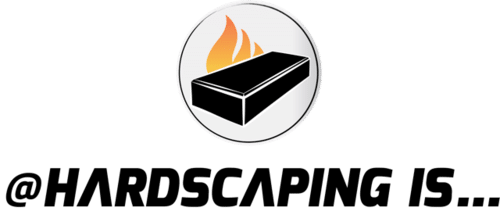
You’ve polished your resume and made it to the interview round. As the interview winds down, the hiring manager asks, “Do you have any questions for me?”
Why Questions Matter More Than You Think
When a candidate comes to an interview with prepared questions, it sends several powerful signals to potential employers.
“It shows that they’ve done a little bit of research,” said Caleb Bahler, sales manager at Pave Tool. “It shows that they’re actually interested. It’s showing that they actually really care about fulfilling a position.”
Beyond demonstrating interest, thoughtful questions reveal character traits that hardscaping employers value highly.
“It shows their dedication to prepping for it and being prepared for the interview. It also shows effort,” Bahler said. “…By them coming with questions, it shows that they’re willing to put in the work before they even know that they’re getting something in return.”
On the flip side, candidates who arrive without questions leave a distinctly negative impression.
“It gives the impression that they’re not detail oriented,” Bahler warns. “…They’re going to probably forget things in their job role. They’re not going to be very organized in their job role. Or that they just don’t really care about the job.”
Your Interview Preparation Strategy
The interview process should be a two-way street. While the employer is evaluating whether you’re right for their team, you should be evaluating whether they’re right for your career goals and values. Thoughtful questions help facilitate this mutual evaluation process.
“It goes both ways,” Bahler said. “As someone that’s trying to hire an employee, I think it’s important that they ask questions so you can see if they’re actually interested in finding out if it’s a good fit for them.”
Before your interview, Bahler recommends a thoughtful preparation exercise.
“I would challenge the individual to come up with the values that they think are most important for a job,” he suggests. “…For example, at the top of my list would be working for someone that is forward thinking and that looks out for the betterment of their employees. Go through and itemize your values and come up with questions that tell you if those values are going to be met on this job.”
This approach helps you stay focused on what matters most to you professionally and to see if it is the right company for you.
“If you’re not hitting your top values that you really see and need in a job, then don’t bother working there. There are many other opportunities out there,” Bahler said.
The Strategic Questions That Impress
Bahler recommends focusing on questions that reveal both your ambition and your desire to understand the company culture. Here are some of his top suggestions:
“What kind of performance are you looking for from an individual to succeed? How are employees held accountable for their performance?”
This question accomplishes multiple goals. It shows you’re thinking beyond just getting hired—you want to excel. You can even take it a step further by asking, “What are some examples of what you see in an individual that’s successful in my role?”
This approach gives you valuable insight into the company’s values and expectations. As Bahler explains, the answer will tell you a lot about your potential employer. If they say they value someone who “just works really hard and does not ask questions,” that might indicate a more rigid, hierarchical environment. But if they mention someone who’s “always thinking, always looking for better solutions,” that suggests a more collaborative, growth-oriented culture.
“What is the potential for growth if I fulfill the job roles that you give me?”
This question demonstrates forward-thinking and ambition.
In hardscaping, “when you’re starting out, you typically start as a labor,” Bahler said. “You’re hauling the pavers. You’re hauling the wall block. You’re doing the things that are more the grunt side of things.” But understanding the growth trajectory is crucial for long-term satisfaction.
If an employer gives a response that indicates you’ll likely be in the same role for five years with no advancement opportunities, that tells you something important about whether this position aligns with your career goals.
One of the great things about the hardscaping industry is its diversity of roles and opportunities.
“There’s sales, there’s marketing. There’s video and photo opportunities. There is bookkeeping. There’s accounting. There’s management. There’s HR, labor, equipment operator, design, lead foreman,” Bahler said.
This diversity means that even if this first role isn’t the best fit, you might find you can excel in design, sales, project management, or any number of other roles within a hardscaping company. Bahler noted that if you put in effort and position yourself as a good employee, you can set yourself up to be able to explore and try out other opportunities later on.
“What is the top value that you feel makes a great employee?”
This question helps you understand the company’s core values and determine if you’d be a good cultural fit.
“You want to know more about the company as a whole and the individual that you’re going to be working for, so you can see if it’s really a good fit for you,” Bahler said.
“What kind of training, education, or mentorship do you offer?”
This question shows you’re thinking about professional development and long-term growth. Companies that invest in employee education and training demonstrate their commitment to your success.
“What does a typical day-to-day look like?”
While this is a common question, it’s still valuable for understanding the practical realities of the role and what you’ll actually be doing on a regular basis.
Questions to Avoid (At Least Initially)
While it’s natural to wonder about compensation and benefits, Bahler advises against leading with these topics.
“I would avoid talking about pay,” he said. “As an individual looking for a job, you will be paid based off of your performance, and if you’re confident that you can perform, the pay structure really is not one of your top concerns.”
Similarly, asking immediately about time off, breaks, or other benefits can send the wrong message.
“Don’t ask how much time you have off, what you get for breaks. That just shows that you’re already looking for a way out of work,” Bahler said.
Pay and benefits are important considerations for any job. But timing matters. Focus first on demonstrating your value and understanding the role, then address practical concerns later in the process.
Making the Most of Your Questions
“Asking questions is what’s going to set you apart from other individuals,” Bahler said. “The more questions you ask, the harder questions you ask, the better of a chance that they’re going to be more interested in you than other individuals.”
Your questions should reflect your desire to understand not just the job, but the company culture, growth opportunities, and how you can contribute to the organization’s success. They should show that you’re thinking beyond just getting hired; you’re considering how you can grow and add value over time.
By preparing strategic questions, you’ll also significantly increase your chances of landing the job. The questions you ask might just be the factor that gets you hired.
